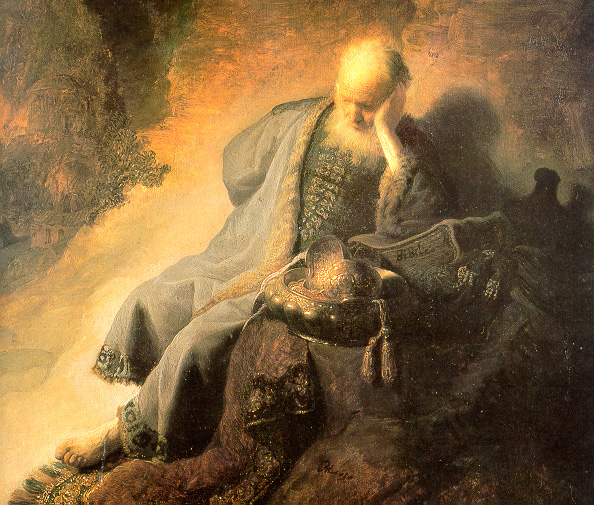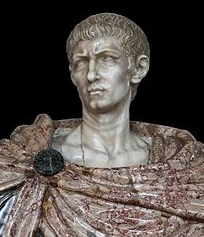Matthew 8:20New Revised Standard Version Catholic Edition (NRSVCE)
20 And Jesus said to him, “Foxes have holes, and birds of the air have nests; but the Son of Man has nowhere to lay his head.”
Having one of my degrees in history, I am able to spot false revisionist history. Revisionist history became a popular ideological tool of academia, a tool which is now used at every level of education, down to kindergarten. Revisionist history is one reason I did consulting for schools in the early 2000s, bringing them back to Classical Education, using original sources, instead of propaganda generated in the 1970s. Unfortunately, revisionist historians infiltrated the scholarly discipline of Church History, to the point where many things which are now normally accepted by Catholics in the pew can be traced to ideologies perpetrated by various revisionist Catholic historians who departed from centuries of Church teaching, including history.
Three dangerous developments worm their way into the minds and hearts of Catholic through the lies of revisionist history. More than three exist, but these are the most pernicious.
Some of these lies affect the nature of Christ's mission on earth, but let me start with the least "stupid" and move towards the worst revisionist ideal.
Today, the first one I want to consider is the lie that the Early Church was not persecuted and that the history of the martyrs is exaggerated. Secular historians have always desired to undermine the power of the Early Church, including some Protestant church historians, as it strengthens the argument that the Church was not that strong immediately after the Apostolic Age.
Early historians outside of Biblical texts testify to the large, planned extermination of Christians. As I noted in the series last year, February 24, 303, Christianity, or Catholicism, to be exact, came under the empirical title of "heresy", as paganism, and specifically, empire-emperor worship, was the state religion.
Those who try and undermine the impact of Catholicism need only read St. Augustine, and look at the number of dioceses, cathedrals, and churches which existed at the time of the Fall of Rome. At the Council of Carthage, six Catholic provinces of 466 dioceses just in Africa alone were represented by bishops. When Huneric, an Arian and King of the Vandals, exiled the African bishops, 464 went into hiding or moved out of their dioceses to other safe havens. Some were martyred. Ironically, the date of his removal of the bishops was February 24, 484,181 years after Diocletian's persecution began. And those numbers reflect the Church in northern Africa without consideration of the Church in the Levant or Europe.
The lie that the Church was, one, not large, and two, not persecuted, has popped up in articles online as late as two months ago. What is behind this lie may be the growing worship of the State, which, of course, would never hurt Christians. This lie lulls people into a false sense of security, especially Catholics, as the State wants all to believe it supports religious freedom. Not so then, not so now. Many Catholics still trust the State when they should be very wary as there is a conflict of interests in most Western countries between Catholicism and State practices and beliefs.
The second revisionist lie involves the spreading of the falsity of the following of chastity for priests and bishops in the Early Church. One only needs to look at the writings of the Fathers on the importance of chastity and the growing discipline of celibacy in the priesthood, as well as the lives of the myriad celibate and chaste saints to bring this untruth into the light. Those who push for the married priesthood and who want to destroy the discipline of celibacy in the Church have developed this revisionist historical lie. Yes, some of the early bishops, and even the Apostles, were married. But, we know that these men entered into celibate relationships, even Peter leaving his family, when God called him to Rome. The exhortation of St. Paul that a bishop should be a man with one wife is not a revisionist interpretation that there was polygamy, but that if the wife died, the cleric would not remarry. This is true today in the rule of the Ordinariates, those priests who have come in under the Personal Provision of St. John Paul II, and deacons. In fact, with the re-establishment of the deaconate, it was the desire of the Church that such men, and the new Ordinariate and PP priests, would enter into Josephite relationships with their wives. But, sadly, some bishops ignore this desire on the part of the Church, and also ask for exemptions. Celibacy has been, since the time of Christ, the norm which became the accepted discipline over the years.
The last and third revisionist lie of history is to me one of the most pernicious. I have referred to this many times on this blog, but as it reared its ugly head this week, I bring it up again.
This is the lie, perpetrated after Vatican II, that the Holy Family, specifically St. Joseph and Jesus, were "middle class".
When I hear this lie, from the pulpit and see it, as I have this week in a little Lenten book passed out at church, I want to break into laughter.
Those of us who have studied the history of the ancient and medieval world know one thing for sure. There existed the rich, about 5% of any given population, and the very poor, about 95%.
The middle class came into being in the late medieval, early Renaissance boom of banking and trade, and the term was not even in print until the mid-1700s. The word, bourgeoisie, originally meant a person who lived and worked in a town, rather than in the agricultural world.
The entire concept of a middle class as existing in the class structure of the Roman Empire is not only terribly unhistorical, but laughable.
There are several reasons for this creeping lie concerning workmen, such as Jesus and Joseph, who were carpenters, being middle class.
The first is the denial of holy poverty. The Protestant historians were the first to deny the value of poverty, following their guides, the Protestant theologians, who saw and still see, poverty as punishment for gross sin. Those who are middle class are blessed by God because they are holier than the poor, and so on.
For centuries before the 1970s, holy poverty was held up as not only an ideal, as practiced by the great religious orders, but as a comfort for the vast majority of Catholics in the world who were living in poverty. Priests pointed to the simplicity and poverty of the Holy Family as an example for all families to follow. One of the reasons the orders made vows of poverty was directly linked to Christ's own poverty, in an effort to live exactly as He did while on earth. Holy poverty links one to the denial of self and detachment from worldly goods, hardly a popular subject for priests in the pulpit these days.
The second reason for perpetuating the lie of the Holy Family as middle class is the constant re-definition of the working class in recent years. To blur the distinctions between labor or blue collar and white collar workers, some historians have purposefully looked to the Holy Family as an example of middle class wealth gotten by work of the hands.
Well, it is true that plumbers and carpenters make more money than I ever did teaching, but this comparison of modern workmen cannot be made with those of the past. I made $21 per hour as a college teacher, while I paid my plumber $70 per hour to fix a pipe. That the term "laborers" now covers those who make 100,000 USD a year or more in the construction business, or those who make expensive hand-made furniture, like someone I know who charges $800 for a hand-made chair, has nothing to do with the lot of the Holy Family.
Those who worked with their hands in the ancient times were either slaves, or just above the slave class, that is freemen, who worked for very poor wages. Even an independent furniture maker, or a builder of walls, would not be paid today's market prices for labor. These modern fees have come about because of the lack of skilled workers, or unions.
The ancient world upper class did not have any responsibility to pay fair wages, an idea which simply did not exist outside of Judaism and Christianity. There is a reason why one of the four sins which cry out to God for vengeance includes not giving a fair wage to workers....because it was a huge problem in the ancient world! That the one, true God through the prophets exhorted the Hebrews on this very point reveals the depth of the sins of greed and pride among the few rich.
Joseph and Jesus would have "gotten by", as we say in the Midwest, but just. The typical laborer in the Roman and Jewish world would have been poor by even today's standards-small houses of one or two rooms, dirt floors, work space connected to the house and so on. Mary's daily trip twice a day to the well reveals her poverty. They had no maid, no helpers, no family that we know of, only the Son of God who humbled Himself to live among the poorest of people in the ancient world, the Jews, long subdued and taxed mercilessly.
The third reason, but not the end of the list, for the perpetuation of the lie which states that Jesus, Mary and Joseph were middle class, is the worst reason of all.
When the Catholic Church members, especially in the United States, became middle class, they no longer wanted to remember their impoverished ancestors, or even their recent past. The new middle class wanted to forget the trials and sufferings of poverty and not be reminded of their duties to the still poor.
To purposefully forget one's past poverty means that a person has fallen into the sin of pride and desires the esteem of others in the society. To identify with a poor Christ means that one cannot forget that we are all poor, indeed, naked before God.
The comforts and consolations of the middle class prevent people from growing in the one virtue which invited God into the heart, and mind and soul--humility.
Today, there is about three feet of snow on the ground. Yesterday, I asked a couple to take me shopping as I am almost out of food. I can pay for it, but I have no way to get to the grocery stores unless I take a cab.
They said "no".
This type of thinking, even among Catholics, has to do with the revisionist history people hear from the pulpit and read in their Lenten meditations. Many priests themselves are too comfortable in middle class lifestyles, like going on extensive vacations, even more than once a year, driving expensive cars, eating out frequently at the best places. They cannot preach what they themselves do not live.
They do not understand the Holy Family. They do not understand what it means to create a holy family in their own parishes. They may not think of the necessity of Jesus giving Mary to John at the Cross. Why? She had no one else and would have been forced into the street--(and another proof of her ever-virginity, as there were no so-called brothers and sisters of Christ to take her in.)
Think on that.
Without Joseph and Jesus, Mary would have had to rely on her community for things. Perhaps, they would not have helped her, thus Jesus remembering her plight from the place of His Death.
I have no Joseph, no Jesus in my home to help me. How many others are overlooked, especially in these places of bad weather, because they do not measure up to the false idea of the middle class Jesus?
I shall nibble on what I have and be comforted by the thought that the Holy Family lived in poverty and had great joy even in suffering, and perhaps, having days without adequate food.
That is the model still for Catholics today. Revisionists allow themselves to judge and to not be involved with the plight of others because "their Jesus" did not suffer poverty.
He did. He still does.
From Philippians 2:
4 Let each of you look not to your own interests, but to the interests of others. 5 Let the same mind be in you that was[a] in Christ Jesus,
6 who, though he was in the form of God,
did not regard equality with God
as something to be exploited,
7 but emptied himself,
taking the form of a slave,
being born in human likeness.
And being found in human form,
8 he humbled himself
and became obedient to the point of death—
even death on a cross.
did not regard equality with God
as something to be exploited,
7 but emptied himself,
taking the form of a slave,
being born in human likeness.
And being found in human form,
8 he humbled himself
and became obedient to the point of death—
even death on a cross.
9 Therefore God also highly exalted him
and gave him the name
that is above every name,
10 so that at the name of Jesus
every knee should bend,
in heaven and on earth and under the earth,
11 and every tongue should confess
that Jesus Christ is Lord,
to the glory of God the Father.
and gave him the name
that is above every name,
10 so that at the name of Jesus
every knee should bend,
in heaven and on earth and under the earth,
11 and every tongue should confess
that Jesus Christ is Lord,
to the glory of God the Father.



















